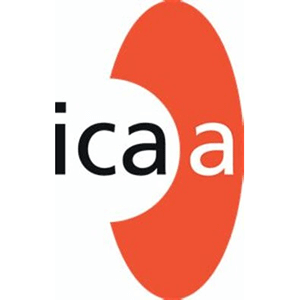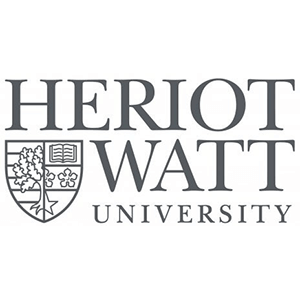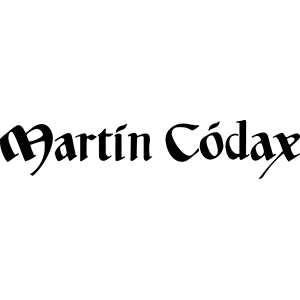Programa de sostenibilidad ESFF 2023:
El ESFF tiene el objetivo de cumplir con las normas de ISO 20121 y adherirse a las regulaciones de la Agencia de Medio Ambiente y el ayuntamiento. Pretendemos que el ESFF sea lo más sostenible posible para la comunidad local, el equipo y la audiencia.
Educación e información:
– Boletines y reuniones para informar al equipo, personal, a los proveedores, patrocinadores y a otros participantes del festival sobre la política de sostenibilidad.
– El personal se formará sobre nuestras políticas de sostenibilidad del festival de este año a través de una presentación en línea, con una sesión de preguntas y respuestas sobre la implementación de la política. Un enlace de esta presentación se enviará a todo el personal para que pueda tener la información a mano en caso de duda.
>Esta presentación se dividirá en secciones:
Eventos y proyecciones; alimentación y catering; transporte público; reciclaje
Locales y accesibilidad:
- Promoveremos el transporte público para acceder a los locales y cines (toda la información pertinente se encuentra adelante en este documento)
- La promoción de rutas que minimicen las molestias a la comunidad local.
- La promoción del uso compartido del coche a través de nuestras plataformas en línea: https://liftshare.com/uk/how-it-works https://liftshare.com/uk/community/edinburgh
- Hay tarifas de aparcamiento por casi todos los lugares de eventos.
- Unas alternativas en línea para algunos de los eventos.
Residuos:
– Tener como objetivo una reducción al máximo del uso del papel:
o Desarrollar la presencia en línea de la comercialización, la venta de entradas, el registro, la agenda y otra información, así como una encuesta de opinión en línea.
o Crear una aplicación con fines informativos y administrativos.
o Los folletos y paquetes informativos se distribuían sólo a petición de los clientes, y deben ser devueltos y reutilizados.
-Los obsequios y merchandising serán: útiles, reutilizables, fabricados con materiales sostenibles y reciclables.
– Reciclaje:
o Que los contenedores de reciclaje, compostaje y residuos generales sean bien etiquetados en los locales.
o Reciclaje de los folletos de papel, las entradas, la basura, etc.
o Utilizar plataformas/foros en línea (Meadowshare, E-bay, Gumtree) después del festival para reutilizar y devolver los artículos a la comunidad local (los artículos podrían encontrarse de este modo también).
o Respetar las regulaciones del Ayuntamiento de Edimburgo sobre residuos y reciclaje.
o Garantizar la devolución y reutilización de cualquier uniforme o camiseta.
o Las camisetas se elaborarán con un algodón 100% orgánico y de comercio justo.
Cáterin:
– Que los productos sean del origen local, de comercio justo, y que los proveedores tengan políticas ambientales y sostenibles.
– Carga para envases reutilizables, platos y tazas etc. (para alentar a la gente a traer su propia), con esta carga reembolsado a la vuelta / Evitar envases y opta por envases reutilizables p. ej. Vidrio, Tupperwares, etc.
– Un cartel informativo sobre la comida para minimizar los desperdicios de comida.
– Que la comida sobrante sea donada.
Access to ESFF Venues:
*WE REQUEST THAT YOU SERIOUSLY CONSIDER USING PUBLIC TRANSPORT, CAR SHARING, OR TRAVEL ON FOOT OR BIKE WHERE POSSIBLE, OVER ANY PRIVATE TRANSPORT*
Find out more about care sharing! https://liftshare.com/uk/how-it-works
(Edinburgh car share network: https://liftshare.com/uk/community/edinburgh)
How to get to the Filmhouse Edinburgh:
Address: 88 Lothian Road, Edinburgh, EH3 9BZ
By bus:
1, 2, 10, 11, 15, 16, 22, 24, 30, 34, 35
By train:
Closest train stations:
Edinburgh Haymarket – 0.7 miles
Edinburgh Waverley – 1.1 miles
For bicycles:
Closest bicycle racks are on Festival Square and at the corner of Semple/Morrison Street.
Parking:
Closest car parks are Castle Terrace (behind the Usher Hall, Traverse and Lyceum Theatre) and in Semple Street underneath Scottish Widows : https://www.ncp.co.uk/find-a-car-park/car-parks/edinburgh-castle-terrace/
Parking fees in place at this destination
How to get to the Glasgow Film Theatre:
Address: 12 Rose Street, Glasgow, G3 6RB
By Subway:
Nearest subway is Cowcaddens. See subway information.
By Bus:
Local bus services stop close to the cinema. See bus information.
By Train:
Queen Street – 0.6 miles
Central Station – 0.7 miles
TransPennine Express offers a handy guide to visiting Glasgow by train, or visit: National Rail.
By Bike:
Bike racks are located across the street from GFT.
Parking:
Closest public parking is the supervised 24-hour multi-storey car park in Cambridge Street. There is limited, metered, on-street parking opposite GFT.
Parking fees in place at this destination
How to get to the MacRoberts Art Center:
Address: Queens Court University of Stirling Campus, Stirling FK9 4LA
On foot from the University Bus Hub to Macrobert:
There are signs directing you externally from the bus hub to Macrobert.
By bus from the University Bus Hub to Macrobert:
There are regular buses to and from Macrobert Arts Centre, stopping at the University Bus Hub – 54 / UL. (more information : https://www.firstbus.co.uk/)
To the university from Stirling town (and train station):
The UL, 51 and 52 go from Stirling town to the university campus (Hillfoots road).
By train:
Regular train services run from Edinburgh and Glasgow and trains also stop in Stirling on Scotrail routes from Inverness, Aberdeen, Dundee and Perth. (more information: www.travelinescotland.com)
Parking:
Mon to Fri, 9am to 5pm all visitors pay to park and it can be really busy so please allow extra time.
It’s free to park on campus after 5pm and on the weekend.
(More information about charges at : https://macrobertartscentre.org/about/your-visit/ )
Food Sourcing and Donations:
- Food donation organizations. Most places accept only non-opened, non-perishable items. We would have to take the food to local food banks.
- https://fareshare.org.uk/scotland/
- https://edinburghfoodproject.org/foodbank/
- https://www.trusselltrust.org/
- Sources of food:
- Black hoof (https://theblackhoof.co.uk/) – all meats sourced from family-owned Jamon Iberico producers, who are from the 4 regions that are renowned for producing the best Jamon in the world; Extremadura, Guijuelo, Jabugo and Valle de los Pedroches.
- Malvarosa (https://www.malvarosa.co.uk/about-us/) – Elaborated from scratch our food enjoys the mixture of organic, Spanish and high-quality products locally sourced where possible to make sure that the real flavours of Spain are delivered at the highest standards






















